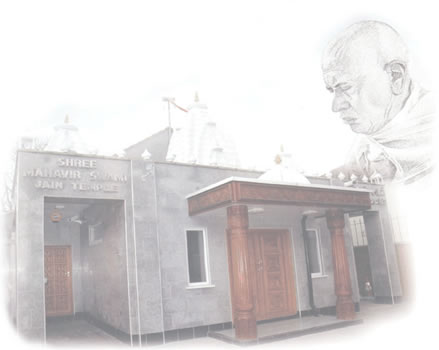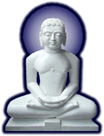
Below is a brief summary of what can be called Jainism and who Jains
are. One can find more information in our Education Centre and elsewhere
on the web.
Jainism is said to be the codification of eternal universal
truths. Over time, these truths lapse amongst humanity and then reappear
through the teachings of Omniscient Teachers called Tirthankaras.
Jainism can be desribed as more of a philosophy of what is rather
than a religion requiring worship of celestial beings. Jains do not
believe in a Creator God or a First Cause instead believing that
there has been no beginning to time. Jains define 'God' to mean omniscient
beings who have shed their karmic bondages and are free from the
cycle of birth and re-birth. Jains bow down to the Tirthankaras,
a subset of Gods, for showing them the true path to enlightenment
and aspire to be like them. Jains believe that all living beings
are thus capable of achieving 'Godhood'.
The Jain community is split into four categories: monks, nuns, laymen and laywomen, this is called the Jain Sangha. The word Jain comes from the sanskrit word Jina meaning conqueror. So one who has conquered all his passions and liberated himself from the cycle of birth and re-birth can be called a Jain.



